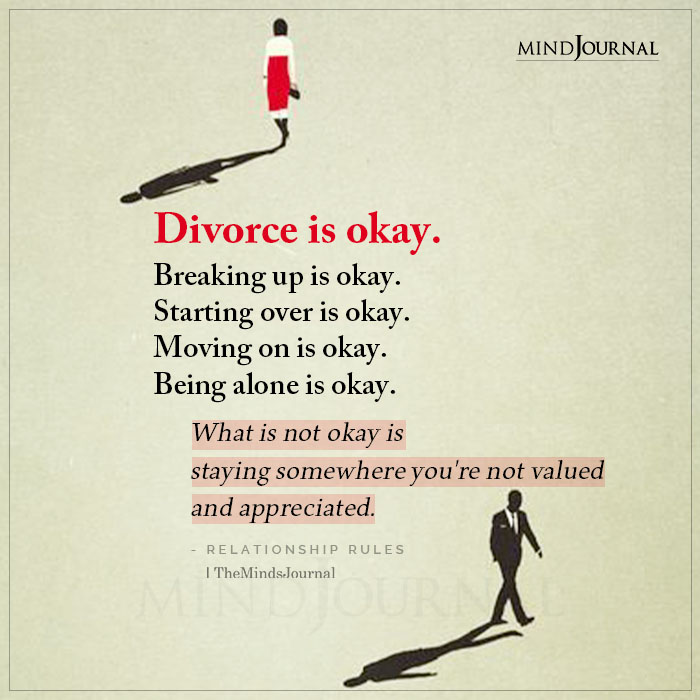What do you do when your spouse wants a divorce from you? Is the very first thought that comes to your mind is, “But I don’t want a divorce!”?
Jane (not her real name) called me in tears. I had worked with her and her husband in marital counseling for several months a year ago. “Jim just told me he wants a divorce! I did not see this coming, and I don’t know what to do! What if I don’t want to divorce! Can you make him come back to counseling?”
Unfortunately, if your spouse wants to divorce, there will be a divorce, whether you want it or not. Generally, when one person files a divorce petition with the court, the divorce will follow. But states do have different waiting periods to give couples time to cool down, reconsider, work on their relationship, or reconcile.
All 50 states allow for no-fault divorces, which means that the parties can agree to divorce without casting blame on one of the parties. They do not have to provide a reason for the divorce. It is assumed that there are “irreconcilable differences.”
However, 17 states are “true no-fault divorce states,” meaning that there is no option to contest a divorce or cast blame. The rest of the states allow divorcing parties to allege faults, such as adultery or abuse. You can see those details here.
Related: What Can You Do If Your Spouse Won’t Agree To Divorce
Jane lives in California, which is a true no-fault divorce state. I explained, “Jane, if Jim wants to divorce, there will be a divorce. I understand how shocked and upset you are, but if he pursues a divorce, you cannot stop the divorce. Let’s talk about what you can do.”
Jane was distraught. I wondered whether Jim and Jane would agree to come back to my office to discuss how Jim had arrived at his decision. I asked Jane if she thought this might help her understand Jim’s thinking. “It could give me closure,” she said. “I am so confused…”
I suggested that she invite Jim to meet with her in my office for one session. She wanted to ask if he would give their marriage a second chance. She also wanted to know if he was involved with someone else.
I wondered to myself whether Jim might express ambivalence about his decision, or whether he was certain that he wanted to end the marriage. If he appeared ambivalent, I might suggest a “trial separation,” although only 13% of couples who separate do reconcile.
I would encourage counseling during the separation to explore whether the relationship could be repaired. If you are in this situation, it would be useful to find a therapist who specializes in discernment counseling. Without counseling, the separation would inevitably lead to divorce.
Jane asked, “Can’t I just slow the divorce down? I think he will come around. I think he is making a rash decision but if I slow things down, maybe he will realize his mistake, and that we are meant to be together.” Sometimes people will delay a divorce by refusing to sign papers or turn over documents.
This is generally not a good tactic and could make things much worse by provoking an angry reaction from your spouse. Instead, focus on ways to communicate constructively and problem-solve cooperatively. You will need to make thoughtful decisions as you navigate the divorce, so get the support that will help you manage your emotions.
So what can you do if your spouse wants a divorce?

9 Things You Can Do If Your Spouse Wants A Divorce And You Don’t
1. Stay calm.
Try to step back and figure out what is happening. Was this a threat or a decision? Has your spouse taken any specific steps yet, such as talking about moving out, or asking you to leave? Has your spouse filed papers or retained a lawyer?
You are probably overwhelmed with anxiety, as well as grief and anger. You need to do everything you can to calm yourself so that you can focus on clear thinking and rational decisions.
Related: When Your Spouse Wants A Divorce: 8 Subtle Signs
2. Talk to your spouse.
Let your spouse know how you feel and ask if there is any possibility of fixing the relationship, with counseling or other support. Is there room to reconsider? Would he or she work with you and a marital therapist?
Ask yourself how willing you are to consider changing your own behaviors that may have contributed to the breakdown of the marriage.
3. Try to understand what made your spouse come to this decision.
Is there anything that would make him or her change their mind? Jane told me, “He has always wanted me to convert to his religion, and I have resisted. What if I tell him I will do that now?”
It may be too late but you can offer—as long as it is a sincere offer, one that you won’t regret later.
4. Talk about how you will pace yourselves as you move toward divorce.
Try to agree to take things slow so that you can focus on your feelings first, before moving into a legal process.
Related: Husbands: How To Avoid Being Divorced By Your Wife
5. Consider nesting for a period of time if you have children.
This will keep your kid’s lives undisrupted while you and your spouse focus on the state of your relationship and think about the many decisions that you will have to make.
6. Discuss a non-adversarial process.
Since divorce will happen if one person wants it, commit to a divorce process that will not tear you and your family apart.
Consider mediation or Collaborative Divorce, and ask your spouse to commit to a respectful divorce process. Do everything you can to stay out of court. It doesn’t have to be a war.
7. Accept and let go.
The reality is that it only takes one person to end a marriage, and it takes two people to save a marriage. If your spouse has moved on emotionally, then your pleas and promises will not bring him or her back.
For your own mental health, you need to accept the reality, understand that you cannot control another’s decisions, and let go. Ask yourself whether you want to be married to someone who does not want to be married to you.

8. Divorce is a life crisis for everyone, even the person who initiates it.
However, it may be even more stressful for you if you don’t want the divorce, especially if you didn’t see it coming.
The most important thing you can do is to take care of yourself: get emotional support, and make sure you stay healthy with good eating, sleep, and exercise. A divorce coach can help you navigate this turbulent time.
Related: How To Know When It’s Time To Hold On or To Give Up A Relationship
9. Focus on building a new life that you will enjoy.
You are not alone, and you will recover. Visualize what you’d like your life to look like two years from now. Face in that direction, instead of the past, and you will get there.
Want to know more about what to do when your spouse wants a divorce? Check this video out below!
References:
https://worldpopulationreview.com/state-rankings/no-fault-divorce-states https://www.attorneys.com/divorce/how-does-the-waiting-period-for-divorce-work https://www.liveabout.com/12-frequently-asked-questions-about-divorce-1103253
Written By Ann Gold Bushcho Originally Appeared On Psychology Today








Leave a Reply